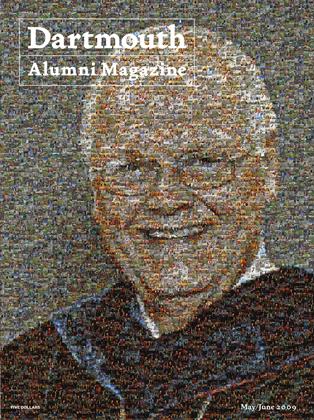IN THIS BRIEF PASSAGE FROM HIS LATEST BOOK, KaUFFMaN exPlores tHe UNiverse’s lawless aNd RADICAL CREATIVITY.
it’s tiMe to assess How Far we have come. We began this book by looking at reductionism, which has dominated our scientific worldview since the times of Descartes, Galileo, Newton and Laplace. This philosophy holds that all of reality can ultimately be understood in terms of particles in motion (or whatever the physicists currently suppose is down there), and nothing else has reality, in the sense that it has the power to cause future events. The logical conclusion is that we live in a meaningless universe of facts and happenings.
What about all the aspects of the universe we hold sacred—agency, meaning, values, purpose, all life and the planet? We are neither ready to give these up nor willing to consider them mere human illusions. One response is that if the natural world has no room for these things, and yet we are unshakably convinced of their reality, then they must be outside of naturesupernatural, infused into the universe by God. The schism between religion and science is, therefore, in part, a disagreement over the existence of meaning. If meaning were to be discovered scientifically, the schism might be healed.
We have seen that some physicists have come to doubt the adequacy of reductionism, even in physics. We have seen that biological evolution, the coming into existence in the nonergodic universe of organisms and their organization of structures and processes, cannot be reduced, either epistemologically or on- tologically, to physics. We appear to be living in an emergent universe in which life and agency arose with no need for a Creator God. With agency, a part of life, comes meaning, doing and value. Already we are far beyond pure reductionism into an emergent universe.
The vast nonrepeatability, or nonergodicity, of the universe at all levels of complexity above atoms—molecules, species, human history—leaves room for a creativity in the way the universe unfolds at these levels, a creativity that we cannot predict. Even at the level of extremely large chemical-reaction graphs underpopulated with mass, the flow of the chemical system appears to be unpredictable, and fluctuations do not damp out as the reacting system enters the chemical adjacent possible.
Thus a radical, and I will say, partially lawless creativity enters the universe. The radical implication is that we live in an emergent universe in which ceaseless unforeseeable creativity arises and surrounds us. And since we can neither prestate, let alone predict all that will happen, reason alone is an insufficient guide to living our lives forward. This emergent universe, the ceaseless creativity in this universe, is the bedrock of the sacred that I believe we must reinvent.
Now I want to make my outrageous claim: The evolution of the biosphere is radically nonpredictable and ceaselessly creative. If a scientific law is (as the physicist Murray GellMann concisely put it) a compact statement, available beforehand, of the regularities of a process, then the evolution of the biosphere is partially beyond scientific law. We cannot say beforehand what the regularities of the process are. I cannot overstate how radical what I am claiming is. Since Galileo rolled balls down incline planes and showed that the distance traveled varied with the square of the time elapsed, we scientists have believed that the universe and all in it are governed by natural laws, Newton’s, einstein’s, schrödinger’s. let me call this belief the Galilean spell. Under this spell, we have believed reductionism for over 350 years. I am about to try to exorcize this wonderful Galilean spell that has underwritten so much outstanding science.
Reprinted with permission from Reinventing the Sacred by Stuart Kauffman.
 View Full Issue
View Full Issue
More From This Issue
-
 Feature
FeatureA World of Difference
May | June 2009 By CATHERINE FAUROT, MALS’04 -
 Feature
FeatureGod Is in the Details
May | June 2009 By ALEX NAZARYAN ’02 -
 THE DAM INTERVIEW
THE DAM INTERVIEWJames Wright
May | June 2009 By CHRISTOPHER S. WREN ’57 -
 CLASSROOM
CLASSROOMWalls That Talk
May | June 2009 By Judith Hertog -
 Article
ArticleNewsmakers
May | June 2009 By BONNIE BARBER -
 FACULTY OPINION
FACULTY OPINIONSlow Medicine
May | June 2009 By Dennis McCullough, M.D.







